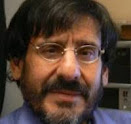Steven Friedman is director of the Centre for the Study of Democracy at the University of Johannesburg. His current research focuses on democratic theory, and over the past decade, he has largely written on the relationship between democracy, social inequality and economic growth. In particular, he has stressed the role of citizen voice in strengthening democracy and promoting equality and has also analysed biases in South Africa’s democratisation which has obstructed democratic participation by the poor. Dr. Friedman has also researched and written widely on the South African transition to democracy, both before and after the elections of 1994. During the 1980s, he produced a series of studies of reform apartheid and its implications for a democratic future.
Dr. Friedman recently published Race, Class and Power: Harold Wolpe and the Radical Critique of Apartheid, a study of radical social thought in the fight against apartheid and its implications for contemporary South Africa. He is currently working on a study which assigns primacy to the role of collective action in creating and sustaining democratic systems of government and a project which is examining the way in which commonly used phrases and terms in the South African policy debate unwittingly reinforce attitudes which are hostile to democracy. His most recent published articles include “The Ambiguous Legacy of Liberalism: Less a Theory of Society, More a State of Mind?” in Intellectual Traditions in South Africa: Ideas, Individuals and Institutions, edited by Peter Vale, Lawrence Hamilton and Estelle H. Prinsloo; “What We Know Can’t Hurt Them: Origins, Sources of Sustenance, and Survival Prospects of Budget Transparency in South Africa” in Open Budgets: The Political Economy of Transparency, Participation and Accountability edited by Sanjeev Khagram, Archon Fung and Paolo de Renzio; “From Classroom to Class Struggle: Radical Academics and the Rebirth of Trade Unionism in the 1970s” published in Journal of Asian and African Studies and “South Africa: Electoral Dominance, Identity Politics and Democracy’ in Party Systems and Democracy in Africa edited by Renske Doorenspleet and Lia Nijzink. He has authored columns for various newspapers including the Weekly Mail, Business Day, and Mail and Guardian.
He received his BA (Hons) in Political Science at the University of the Witwatersrand, and a D. Litt from Rhodes University.
Next Week
It's a Business Meeting. The first one of the new Rotary Year when the new board and the old one meet together despite there obviously being an overlap.
Last Week
It was a Project Meeting with the emphasis on sorting out the solar installation at Bethany.
International - IT Professionals Forum Rotary Fellowship
The IT Professionals Forum Rotary Fellowship is a new community aimed at harnessing the expertise of tech-savvy members to foster significant societal change through innovation and technology. This new fellowship represents a bold step forward in integrating advanced technology solutions within the Rotary community to enhance global service initiatives.
Mission and Vision
The IT Professionals Rotary Fellowship is founded on the principle of leveraging technology to improve lives—a vision that aligns seamlessly with Rotary’s enduring commitment to Service Above Self. By blending the technical expertise of its members with the philanthropic objectives of Rotary, the fellowship aims to address complex challenges across diverse communities worldwide.
Empowering Technological Transformation
The fellowship stands at the intersection of technology and community service, uniquely positioned to drive transformative projects. From developing digital literacy programs and implementing sustainable technology infrastructures in underserved areas to creating innovative solutions for health and education, the possibilities are limitless.
“The potential of technology to solve complex problems and improve the quality of life is enormous. Through this fellowship, we bring together the brightest minds in IT to multiply the impact of their skills by applying them to meaningful projects,” explained the Fellowship Chair, Rotarian Rakesh Babuji.
Opportunities for Members
Membership in the IT Professionals Rotary Fellowship opens a plethora of opportunities for personal and professional growth, as well as the chance to make a substantial impact in:
1. Professional Development: Members will have access to a wealth of resources, including cutting-edge workshops, webinars, and conferences that discuss emerging technologies and their applications. This continuous learning environment not only keeps members updated on the latest technological trends but also equips them with new tools to tackle projects effectively.
2. Networking: The fellowship facilitates a global network where professionals can connect, collaborate, and share insights with peers who share a common vision of service through technology. These connections can lead to innovative projects and solutions tailored to community needs.
3. Project Leadership and Participation: Members can lead or participate in projects that align with their expertise and interests. Whether it’s deploying a new database system for a nonprofit, designing educational software for schools in remote areas, or developing a mobile health application, each project provides tangible benefits to communities and invaluable experience to the members involved.
4. Recognition and Growth: As members contribute to various projects and initiatives, they gain recognition within the Rotary community and their professional fields, enhancing their personal growth and professional stature.






















.jpg)















.jpg)